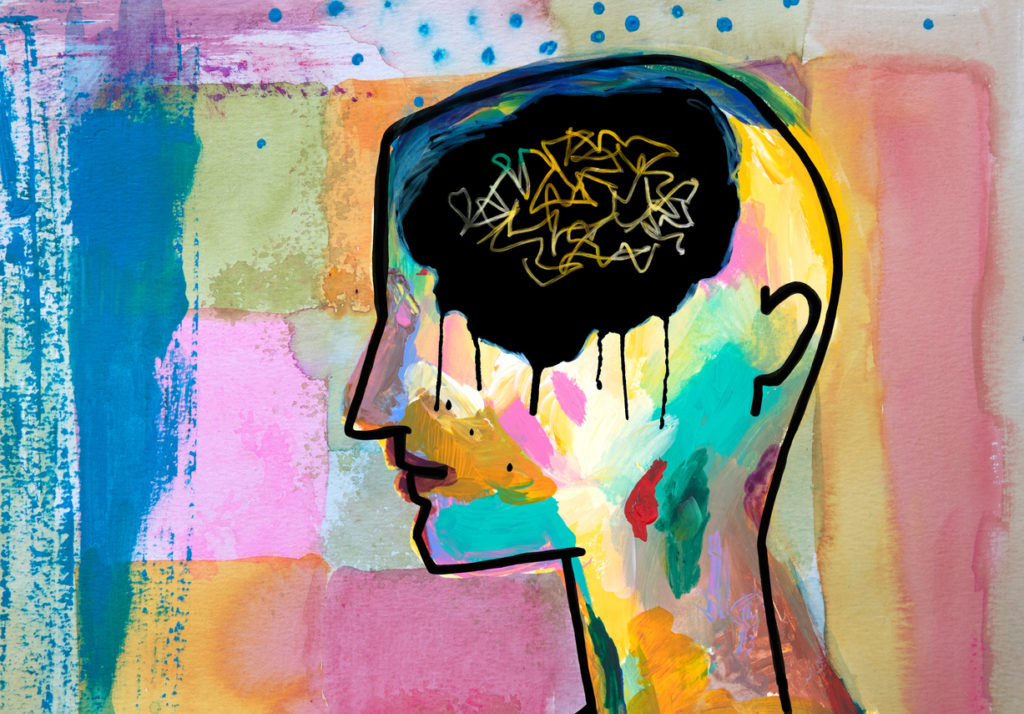The purpose of this study is to use brain imaging technology to examine the role of certain brain receptors and the nervous system chemical acetylcholine in major depression.
Official Title
Muscarinic Cholinergic Receptor Imaging in Depression
Conditions
– Depression- Bipolar Disorder
Study Type
Observational
Study Design
Natural History
Further Details
The cholinergic system involves the regulation of neurotransmitters and the brain receptors to which they bind. Evidence suggests that the cholinergic system may play a role in the development of depression. Acetylcholine is a neurotransmitter that binds to certain brain receptors called muscarinic cholinergic receptors. Cholinomimetic drugs (drugs that stimulate the cholinergic system) often exacerbate depressive symptoms in people with mood disorders and in healthy individuals. This increase in depressive symptoms may be caused by stimulation of muscarinic acetylcholine receptors (mAChRs), but further study is needed to confirm this. This study will use positron emission tomography (PET) and magnetic resonance imaging (MRI) to study the function of mAChRs in individuals with depression. Participants in this study will undergo a physical examination, psychiatric interviews, neuropsychological tests, PET and MRI scans, and rating scales of depression, anxiety, and negative thinking symptoms. Questions about behavior and functioning will be asked and blood samples will be collected for genetic analysis. Several paths of evidence converge in implicating a role for the cholinergic system in the pathophysiology of affective illness. In both unipolar depressed and euthymic bipolar subjects, cholinomimetic drugs (i.e., muscarinic agonists, acetylcholinesterase inhibitors) exacerbate depressive signs and symptoms such as dysphoria, psychomotor retardation, impairment of attention and memory, hypothalamic pituitary adrenal axis hyperactivity and sleep EEG abnormalities. In healthy subjects, the acetylcholinesterase inhibitor physostigmine elicits a range of depressive symptoms including dysphoria, anergia, psychomotor slowing, emotional lability, sleep disturbances, memory and concentration impairment, and with higher doses, tearfulness and depression. These effects have been shown to reflect stimulation of muscarinic receptors. Cholinomimetics also exacerbate behavioral despair in putative animal models of depression. Conversely, the anticholinergic agent biperidine improved symptoms of depression in a placebo controlled study. Moreover, muscarinic cholinomimetics and a choline rich nutrient, lecithin (phosphatidylcholine) exert antimanic effects in bipolar subjects. Potentially consistent with these observations, depressed subjects exhibit hypersensitivity to cholinomimetic agents. Administration of muscarinic cholinergic agonists, ACh releasing agents or acetylcholinesterase inhibitors induce exaggerated effects on REM density and latency in depressed subjects than in healthy controls. In addition, both manic and depressed bipolar subjects show increased pupillary sensitivity to the muscarinic cholinergic agonist pilocarpine relative to controls. Despite the data implicating the mAChR receptor system in mood disorders, no direct in vivo investigations of the central mAChR have been performed in depressed subjects. A novel PET radioligand, [(18)F]FP-TZTP was recently developed by Eckelman as a selective agonist of M(2) receptors. Because the M(2) receptor functions predominately as a presynaptic release-controlling autoreceptor, decreased distribution volume (V) of this receptor could conceivably give rise to increased postsynaptic muscarinic receptor sensitivity. This application proposes a pilot PET study of M(2) receptor distribution volume in currently depressed subjects with major depressive disorder (n=20), currently depressed subjects with bipolar disorder (n=20), and psychiatrically healthy controls (n=20). The proposed pilot study will test the central hypothesis that M(2) receptor V is decreased in regions where they are primarily located presynaptically in depressed subjects relative to healthy controls. The proposed study will advance knowledge regarding the pathophysiology of depression.
Study Start
Eligibility & Criteria
Genders Eligible for Study: Both Accepts Healthy VolunteersCriteria INCLUSION CRITERIA – MDD Depressed Sample:Twenty subjects (ages 18-50) male and female will be selected, with primary MDD currently depressed as defined by DSM-IV criteria for recurrent MDD and current HDRS score in the moderately-to-severely depressed range (greater than 18) and who have a first degree relative with MDD but no first degree relatives with mania, alcoholism, or antisocial personality disorder.INCLUSION CRITERIA – Bipolar Depressed Sample:Twenty subjects (aged 18-50) male and female will be selected who meet DSM-IV criteria for bipolar I or II disorder and are currently depressed, with HDRS score in the moderately-to-severely depressed range (greater than 18). Subjects may be inpatients or outpatients. Because effective treatment will not be discontinued for the purposes of this protocol, subjects will be identified who have never been treated or who have discontinued medication due to lack of efficacy, noncompliance, physician order, or other reasons prior to study entry.INCLUSION CRITERIA – Healthy, Control Sample:Twenty subjects (ages 18-50) male and female who have not met criteria for any major psychiatric disorder will be selected. From this large sample a control subject will be matched to each depressed subject for age, gender, handedness and stage of menstrual cycle. The control subjects will have no known first degree relatives with mood disorders.EXCLUSION CRITERIA:Subjects must not have taken antidepressant or other medications likely to alter monoamine neurochemistry or cerebrovascular function for at least 3 weeks (8 weeks for fluoxetine and for any drug with known anticholinergic effects) prior to scanning. Because effective medications will not be discontinued for the purposes of this study, subjects will be identified who have never been treated or who have discontinued medication due to lack of efficacy, noncompliance, physician order or other reasons prior to study entry. Subjects will also be excluded if they: a) have had serious suicidal ideation or behavior in the previous two months, or if they have b) had any significant comorbid condition in the last year, c) psychosis to the extent that the ability to provide informed consent is in doubt, d) history of any major psychiatric disorder (other than the target mood disorder) arising temporally before the initial mood episode, e) medical or neurological illnesses (i.e. seizure disorder, a coma in past) likely to affect physiology or anatomy, f) a history of drug or alcohol abuse within 1 year or a lifetime history of alcohol or drug dependence (DSM IV criteria), g) are HIV positive or have AIDS, h) current pregnancy (documented by history and pregnancy testing prior to scanning), i) current breast feeding, j) general MRI exclusion criteria which include the subject having a pacemaker or significant claustrophobia and k) if they are smokers.
Total Enrolment
80
Contact Details
All content and media on the HealthEngine Blog is created and published online for informational purposes only. It is not intended to be a substitute for professional medical advice and should not be relied on as health or personal advice. Always seek the guidance of your doctor or other qualified health professional with any questions you may have regarding your health or a medical condition. Never disregard the advice of a medical professional, or delay in seeking it because of something you have read on this Website. If you think you may have a medical emergency, call your doctor, go to the nearest hospital emergency department, or call the emergency services immediately.







